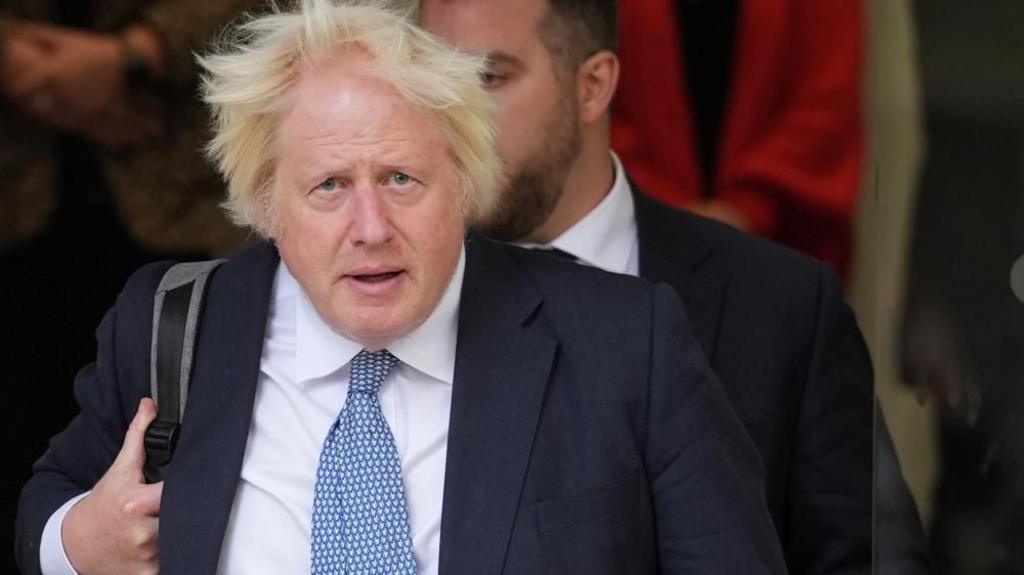Early Tuesday, Boris Johnson arrived at the Covid Inquiry with documents in hand.
He was present to address questions concerning his decisions during the pandemic, which directly impacted the nation’s children.
The impact was substantial.
From school attendance and behaviour to screen time and speech development, the pandemic demonstrably left a lasting mark on children.
Demand for speech and language therapy has seen a significant increase since the pandemic. Persistent school absenteeism remains stubbornly high, while school suspensions and exclusions have reached record levels.
These issues can be traced back to a key point of discussion during this inquiry session: the closure of schools.
On Tuesday, Boris Johnson described the decision to close schools as a “personal horror” and a “nightmare idea,” while also stating it seemed like the only viable option at the time.
Notably, in March 2020, the government primarily focused on keeping schools open.
However, former education secretary Gavin Williamson told the inquiry last week that ministers should have “bitten the bullet” and better prepared for potential school closures.
Previous evidence presented to the inquiry revealed that a plan for school closures wasn’t developed until the day before the announcement on March 18, 2020.
Sir Jon Coles, chief executive of the United Learning trust, described this as an “extraordinary dereliction of duty.”
Yet, the former Prime Minister contested this claim on Tuesday.
“If you look at the sequence from February onwards, it’s clear that Sage (Scientific Advisory Group for Emergencies) is talking about the possibility, the Cabinet is discussing it in March. Certainly I remember the subject coming up repeatedly,” he stated.
Indeed, SAGE referenced the prospect of “mass school closures” in February 2020.
However, Jonathan Slater, the top civil servant at the Department for Education (DfE) at the time, stated in his evidence that the “DfE’s contingency plans were premised on the assumption that schools (and other education settings) would remain open.”
Williamson also informed the inquiry that Downing Street impeded his ability to plan for closures.
This points to the chaotic decision-making processes within the government at the time—a point explicitly highlighted by former children’s commissioner Anne Longfield in earlier evidence.
She stated that it was unclear who held responsibility for planning for children at the time.
It is now evident that there was considerable discord between Johnson and Williamson, who were the individuals with the greatest responsibility for children’s welfare during the pandemic.
Last week, we saw Williamson’s expletive-laden text message to his former boss, lamenting the “abuse” he received for the government’s decision to shut schools the day after reopening them in January 2021.
On Tuesday, Johnson faced scrutiny over his leaked messages to advisors, in which he suggested firing those in the DfE after the August 2020 exam results fiasco.
He now states that the DfE did a “heroic” job trying to cope with the pandemic.
The Liberal Democrats called this an “insult” to the “true heroes of the Covid pandemic: the teachers and doctors, nurses and key workers who put their lives on the line to keep crucial public services going.”
Johnson now concedes that the lockdowns and social-distancing rules “probably went too far,” suggesting that children could have been exempted.
Baroness Heather Hallett, chair of the inquiry, will be paying close attention to these points in her final report, addressing what could be done differently in the event of a similar future crisis.
Inside the inquiry room, technology is prohibited, prompting many journalists to observe the live feed from the press room upstairs.
Tuesday saw a larger turnout than in recent weeks, with a full public gallery. A reminder was issued before the proceedings that heckling would not be tolerated—a reference to Johnson’s previous appearance, when protesters were escorted out.
Campaigners from various groups, including Long Covid Kids and Clinically Vulnerable Families, maintained a visible presence outside, advocating for their causes with placards and banners.
While Boris Johnson is accustomed to speaking to large crowds and formal events, he appeared eager to conclude his testimony, promptly attempting to leave his seat after Baroness Hallett thanked him for his evidence.
He will likely be relieved not to return.
Listen to the latest episode of the Covid Inquiry Podcast on BBC Sounds
The island’s education director says the government will watch developments from Westminster.
Wellfield School will use the cash to create facilities for an additional 89 pupils.
Work to rebuild a primary demolished because of safety concerns is due to start next month.
North Tyneside Council says six weeks is enough to gather views on plans to close and merge schools.
The council wants to shut Smannell and Enham Church of England Primary School which has 24 children.

